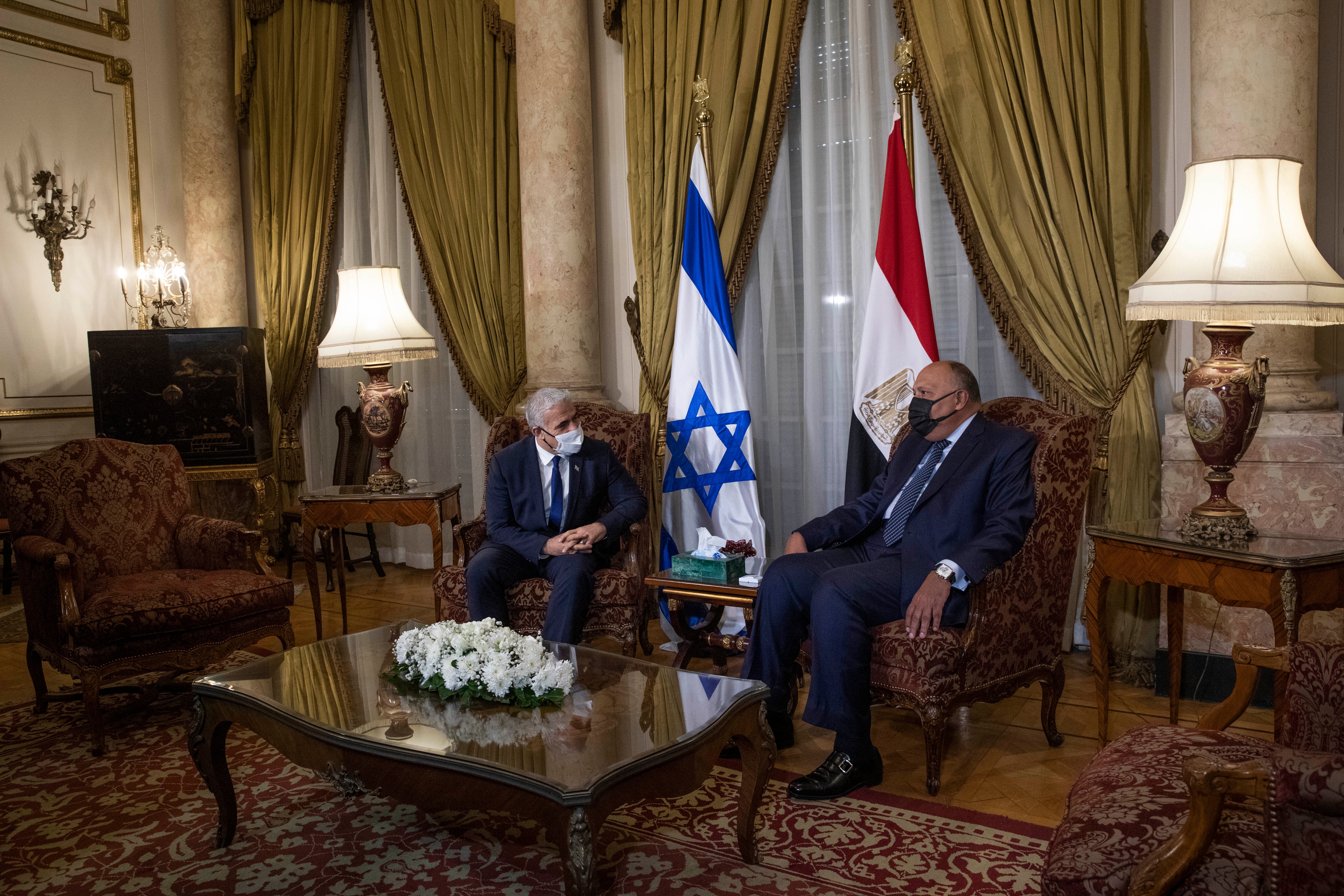Israeli foreign minister in Cairo to strengthen ties
Israel’s foreign minister is in Cairo on a diplomatic visit aimed at strengthening ties and shoring up a tenuous cease-fire between Israel and Gaza’s militant Hamas rulers

Your support helps us to tell the story
From reproductive rights to climate change to Big Tech, The Independent is on the ground when the story is developing. Whether it's investigating the financials of Elon Musk's pro-Trump PAC or producing our latest documentary, 'The A Word', which shines a light on the American women fighting for reproductive rights, we know how important it is to parse out the facts from the messaging.
At such a critical moment in US history, we need reporters on the ground. Your donation allows us to keep sending journalists to speak to both sides of the story.
The Independent is trusted by Americans across the entire political spectrum. And unlike many other quality news outlets, we choose not to lock Americans out of our reporting and analysis with paywalls. We believe quality journalism should be available to everyone, paid for by those who can afford it.
Your support makes all the difference.Israel's foreign minister arrived in Cairo on Thursday on a diplomatic visit aimed at strengthening ties and shoring up a tenuous cease-fire between Israel and Gaza s militant Hamas rulers.
Foreign Minister Yair Lapid met with Egypt s president, Abdel Fattah el-Sissi, and the country's foreign minister, Sameh Shokry, for talks that reflected budding ties between Egypt and Israel's new government. Egypt's intelligence chief also participated in the meetings.
Egypt, the first Arab country to reach a peace agreement with Israel, has served as a key mediator between Israel and Hamas. The bitter enemies have fought four wars since Hamas seized control of the Gaza Strip in 2007, most an recently an 11-day conflict in May, and Egypt has been working quietly to arrange a long-term truce.
Hamas is demanding that a crippling Israeli-Egyptian blockade be eased, while Israel is seeking the release of two Israeli captives and the remains of two dead soldiers held by Hamas.
Israel's foreign ministry said Lapid presented a plan to develop Gaza's economy in return for assurances of quiet, and eventually disarmament, by Hamas. It said the plan must address “the issue of captives and missing persons.”
Lapid also discussed Israeli efforts to strengthen the rival Palestinian Authority, whose forces were toppled by Hamas in 2007. Palestinian President Mahmoud Abbas governs only limited autonomous areas in the Israeli-occupied West Bank.
Lapid raised Israel's concerns about Iran's nuclear program and expressed his country’s desire to ramp up cooperation with Israel in the civilian fields of economics, energy, agriculture, and trade, according to the Israeli Foreign Ministry.
“Egypt is an especially important strategic partner for Israel,” Lapid said. “My goal is to strengthen our security, diplomatic, and economic relations with Egypt. It’s important to continue to work on the peace between our two nations.”
Upon his arrival, Lapid was welcomed by el-Sissi, who stressed his country’s commitment to a two-state solution and to achieving a “comprehensive and just” peace in the Middle East, according to statement released by el-Sissi’s office.
The Palestinians seek an independent state in the West Bank, east Jerusalem and Gaza — areas captured by Israel in the 1967 Mideast war. Egypt, like most of the international community, has been consistently supportive of the Palestinian right to an independent state. Israel's new prime minister, Naftali Bennett, opposes Palestinian independence and has ruled out peace talks, though he favors steps at reducing tensions and boosting the Palestinian economy.
During separate talks with his Egyptian counterpart, Lapid handed over 95 Egyptian archeological items that were seized in Israel earlier this year.
In January, the Israeli police had recovered thousands of stolen archeological artifacts including gold coins, jewelry, ancient Egyptian sarcophagus lids, bronze statues and clay vessels. The items were found in central Israel, after a series of raids described as the largest in the country’s history.
Egypt and Israel reached a historic peace accord in 1979. Relations have generally been cool between the countries, though behind-the-scenes security cooperation remains strong. There have been growing signs of overall cooperation in recent months.
Lapid's visit came three months after Bennett held talks with el-Sissi in the Red Sea resort town of Sharm el-Sheikh. It was the first official trip to Egypt by an Israeli premier in over a decade. At the time, the visit signaled a warming in a relationship that had been security-focused but somewhat cool under Bennett’s predecessor, Israeli hard-liner Benjamin Netanyahu.
Also in May, Israel's then foreign minister, Gabi Ashkenazi, met his Egyptian counterpart in Cairo. It was the first by Israel’s top diplomat to Egypt in 13 years.
___
Associated Press writer Josef Federman in Jerusalem contributed to this report.